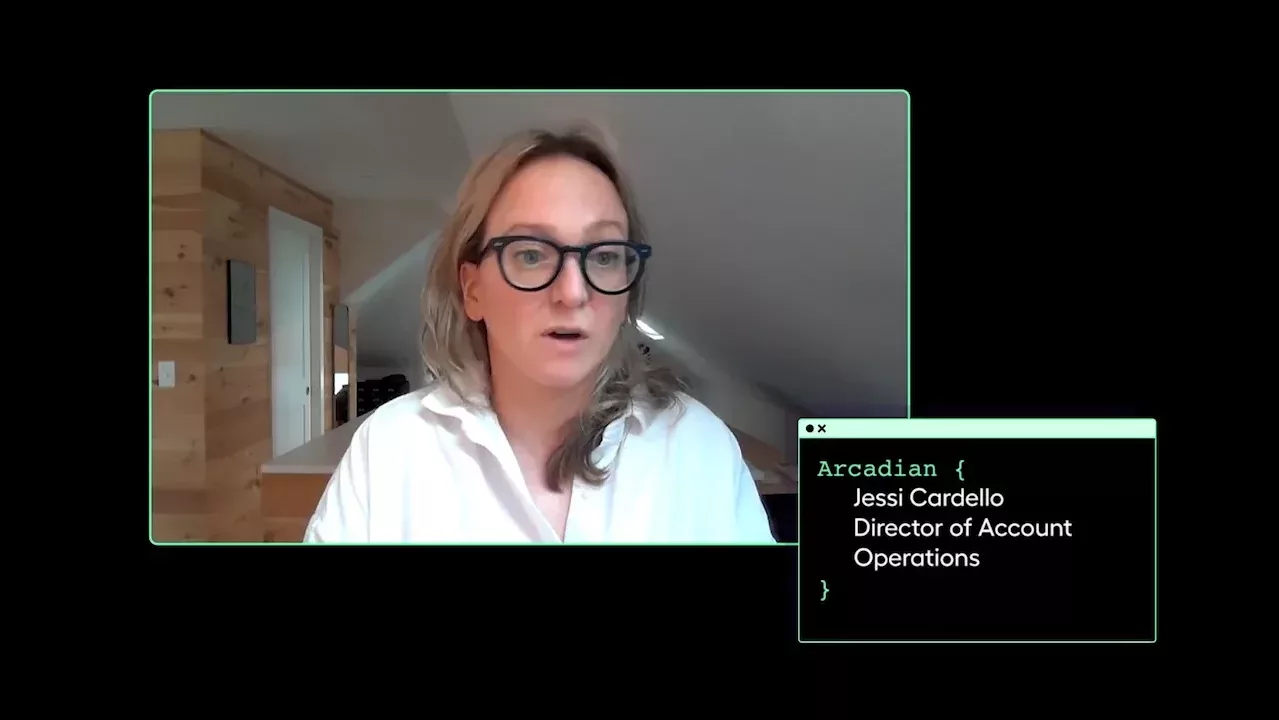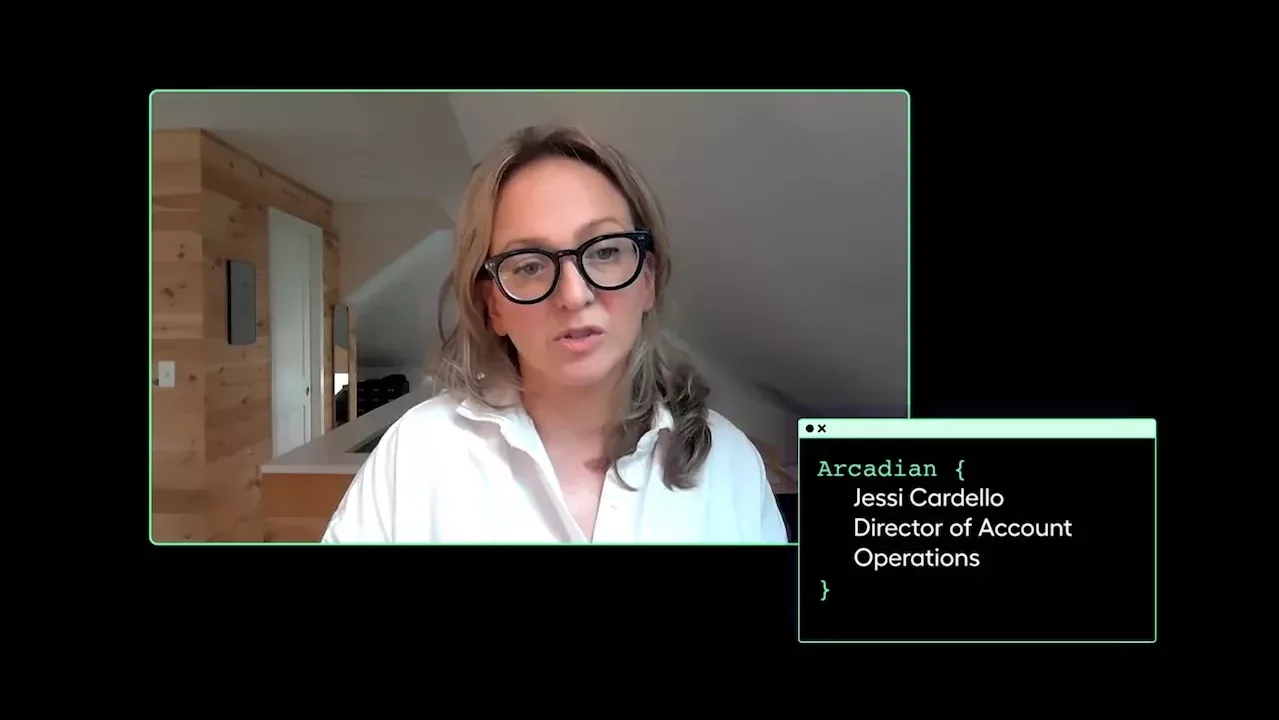How data management can improve health outcomes
Effective data management ensures the accuracy, security, and accessibility of healthcare data. With techniques such as data cleansing, integration, and storage, healthcare organizations can maintain their data in a structured manner. Additionally, data privacy and security considerations are paramount in healthcare analytics to protect sensitive patient information and comply with privacy regulations.
Jessi Cardello, Director of Account Operations, Nick Daniel, Director of Product, and Stephanie Orosz, Solution Engineer at Arcadia discussed how to use data management to close care gaps, reduce medical costs, and improve outcomes in the webinar, The Source: Data Management.
Build dedicated data manager roles
Healthcare executives, data managers, analysts, frontline care teams, care coordinators, and patients are all impacted by data. As such, establishing a data management team is a key component in ensuring positive outcomes. To do this, healthcare organizations need to separate data managers from data analysts.
“They're [data managers] really focused on the art of collecting, organizing, and accessing data to support productivity, efficiency, and decision making,” explained Cardello. “It's not just taking data and putting it in a warehouse and then hoping for the best with your data analysts. It's being really thoughtful about how data analysts will access that data and glean results out of it and then the data analyst is gathering, cleaning, and interpreting that data to answer questions and to solve problems.”
Daniel agreed that the roles accomplish very different things and that success lies in dedicating resources to data management.
“Getting the data extracted from our customers' EMRs or sent to us and then ingested is a whole different facet of leveraging that data for meaningful insights,” he said. “The most successful customers are people that have at least one dedicated resource on the data management side.”
Data management teams live and breathe the data sources, which means they understand when transfer of data is not correct, or they need to resend data.
“If you have any other roles managing the movement of all that data that don't have an understanding of the size or how fast it's going or how frequently it needs to happen, you're missing a big chunk of building the foundation to be able to do all the things for your patients,” cautioned Cardello.
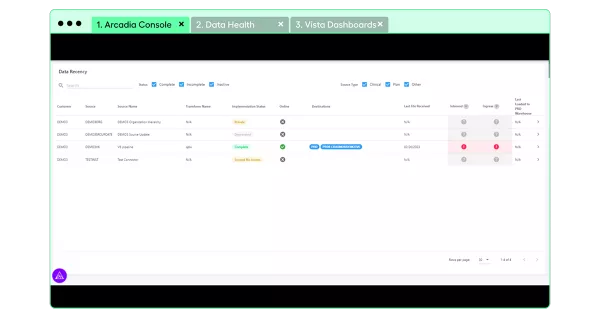
Because this effort is so important, Arcadia designed a landing dashboard for data management teams, known as The Arcadia Console.
“Here they can understand the health of the data and understand what data sources they’re bringing in and check to make sure that they are being processed by Arcadia as expected,” said Orosz. “This is really a nerve center for your data management teams.”
Don’t allow obsession with data trust distract you
To ensure trust in the data, first accept that data is not perfect. The healthcare industry is the lab industry, hospitals, health systems, clinicians, doctors, and more combined, so focusing on the right thing is really important and not getting distracted by edge cases is critical.
“Data trust is important, but it cannot be the distraction to pull you away from the really important mission you have,” said Cardello.
Daniel says there's a myriad of reasons why the data pipes can stop, such as pulling from a server that's taken offline for maintenance, a change in the credentials, a change in the file format, or encrypted files that weren't encrypted.
“There's all these ways that data can change coming inbound and being able to highlight that the data hasn't been received and it's not a downstream problem is pretty powerful,” he said.
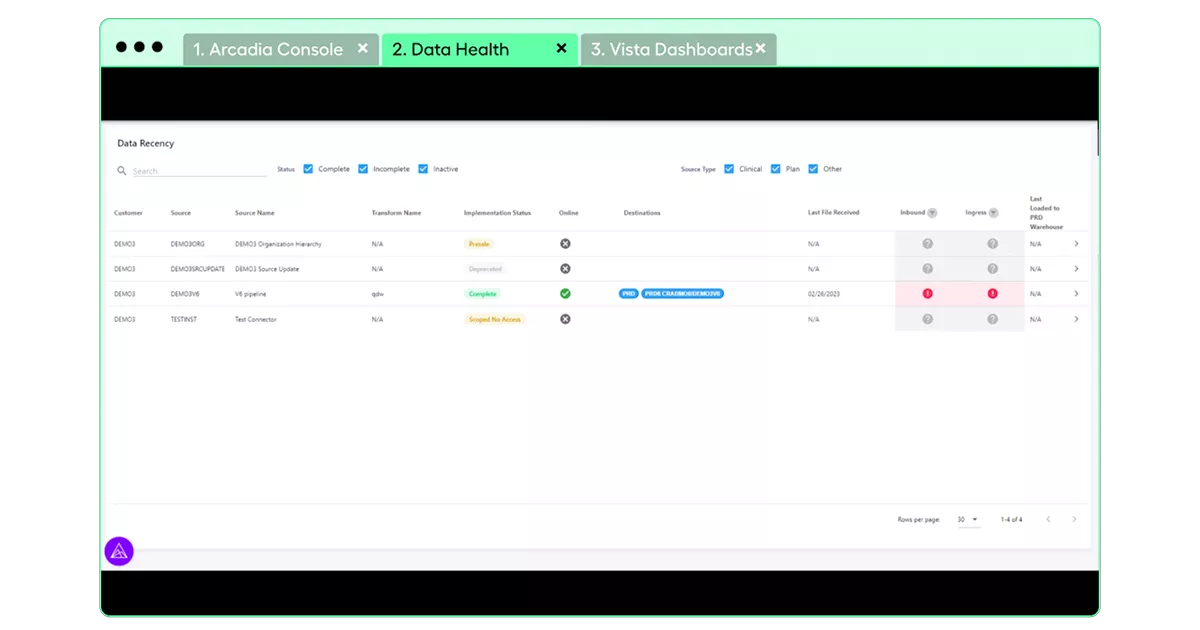
Healthcare data is messy and inevitably there will be issues, so it’s important to troubleshoot those and get them resolved as soon as possible.
“This level of transparency that's provided to your data management team within Arcadia Console can help you get to the root cause of that problem so that we can help get it alleviated as quickly as possible,” added Orosz.
Embrace transparency, visibility, and KPIs
Transparency and visibility into the data transfers allows you to take the guesswork out of the process. It removes the questions such as did all those files I sent over make it, or how can I have a digest of what's working and what's not?
“That's going to change the industry, mostly because we'll spend less time in the pondering stage of is the data right; is it loading correctly; is it current? And more time doing the real-time analytics,” said Cardello.
Arcadia’s Vista tool brings that transparency and visibility to the data. Vista is a business intelligence tool that's built off of the trusted data asset to help health organizations surface insights across a variety of different domains of healthcare.
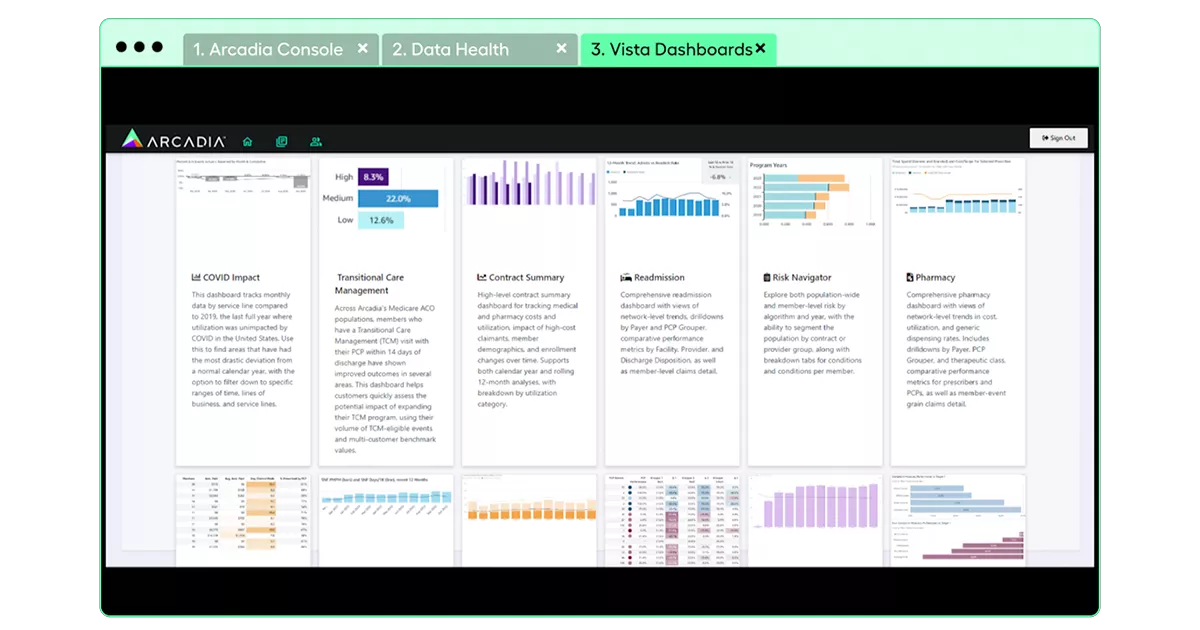
“All of our Vista dashboards allow you to see the last data refresh for each of the data sources those analytics are built off of,” said Orosz.
Vista is also the main location for healthcare organizations to review their key performance indicators (KPIs).
“See at a glance of how you're performing across key performance indicators that help measure the health of your contracts,” explained Orosz. “The intent of this dashboard is for you to start to zero in on what's driving spend or what's driving increased KPIs, like your acute admits per 1000, for instance.”
She noted that subsequent dashboards then allow healthcare organizations to go to the next level to determine the next best action to help change the trend in a positive direction.
The dashboards also collect and analyze social determinants of health data to help healthcare organizations design better programs.
“Once you layer claims and cost information on top of the data about your patients that are impacted by social determinants of health, you can start to think through what's the return on investment for my organization if I focus on supporting my patients that are impacted by these determinants,” said Orosz. “There's a real return on investment not only in the patient outcomes and supporting them, but in dollars and cents.”
Develop a long-game strategy
Data management empowers healthcare organizations to develop a sound long-game strategy. It helps answer key questions:
- Who is in your network?
- How are you going to run your business?
- What are the rules for engagement for the devices that you're going to use?
- How are you going to interact with your customers — from telemedicine to what EMR you choose, what clinical source you use, what hospital you're connected to, or what lab vendor you choose to work with?
Strong tools help leverage data to close care gaps and reduce medical costs. To learn more about ways Arcadia can advance your data management and data analytics capabilities to meet the future of healthcare today, request a demo or watch the webinar replay.

